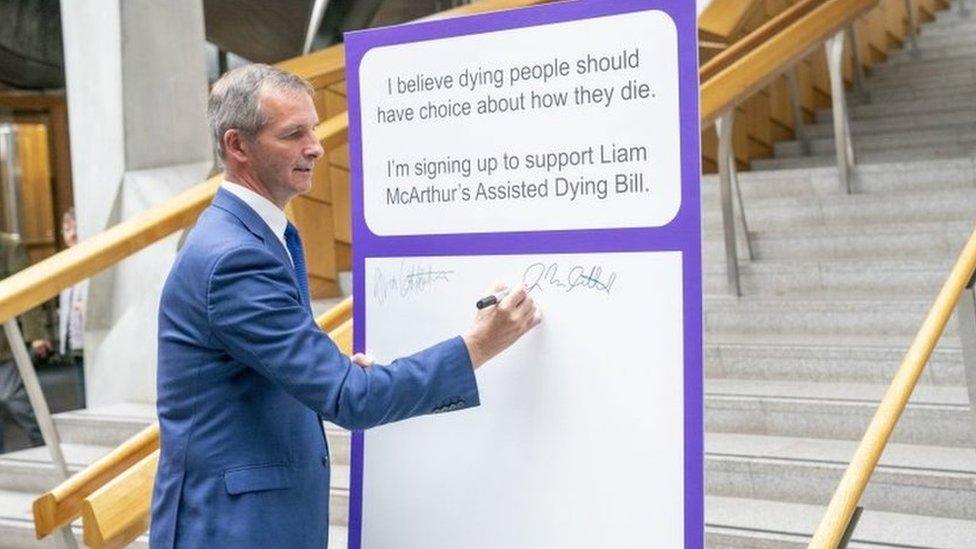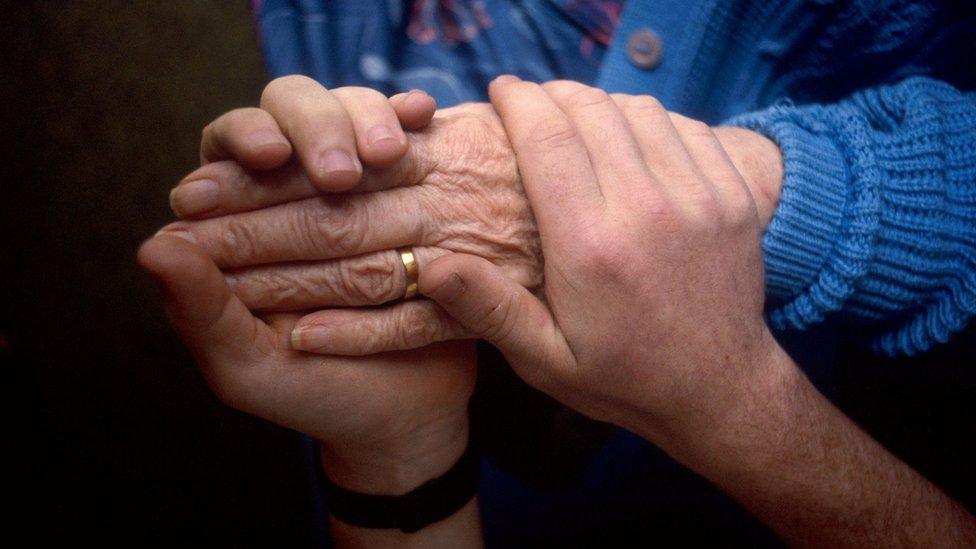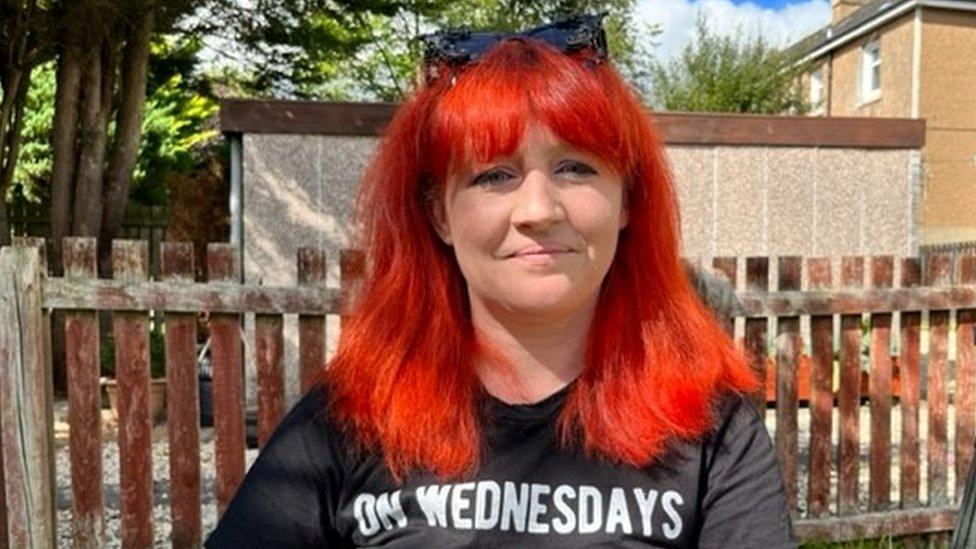'Political mood has changed' on assisted dying - MSP
- Published
Two previous attempts to change the law on the issue were decisively defeated at Holyrood.
The MSP behind a new attempt to legalise assisted dying in Scotland for terminally-ill people has said he is "convinced" it will be passed.
Liam McArthur's bill, to be published on Thursday, would permit medical assistance for people wishing to end their lives.
Two previous attempts to change the law on the issue were decisively defeated at Holyrood.
Mr McArthur said he believed the political mood had changed.
The LibDem MSP told BBC Scotland' The Sunday Show: "We know the public has shown support for a change in the law for probably the last couple of decades but there has been a reluctance from MSPs across the parties to take that step.
"I detect a real shift in the political mood, driven in a large part by witnessing countries and states across the world introducing heavily safeguarded provisions of the kind I'm looking to introduce here in Scotland.".
He said his proposals would require diagnosis of a terminal illness by two separate doctors and a 14-day cooling off period after which a medical substance could be supplied, to be self-administered.
"The ban on assisted dying at the moment is leaving to too many people at the end of life facing horrible traumatic deaths that impact not just them but those that they leave behind, despite the best efforts of palliative care," he said.
He added: "I am absolutely convinced that this long-overdue reform will pass and that the political mood now is closer to where the public mood has been for so long."
Suzie McAllister said her husband would often wake in terrible pain
Suzie McAllister told the programme how her husband Colin had asked her to obtain poison for him during his final weeks with cancer but she felt unable to do so.
She said: "The nurses did what they could but he would often wake up screaming in pain.
"What I saw and had to deal with will live with me forever."

Orkney Islands MSP Liam McArthur won support from MSPs of all parties to allow him to introduce a members bill on the issue
A change in the law has previously been opposed by faith leaders from the Church of Scotland, the Roman Catholic Church in Scotland and the Scottish Association of Mosques.
In a joint statement issued last year they said they believed the principle of assisted dying "undermines the dignity of the human person" and that society as a whole would lose its "common humanity" if it was permitted.
The General Assembly of the Church of Scotland, however, later voted for further "theological research" on the issue.
Some campaigners have argued assisted dying would divert attention away from supporting those who are living with illness, or lead people to feel their lives are a burden on others.
Dr Gordon Macdonald, of Care Not Killing, which is campaigning against the bill, said: "Any law change would place the vulnerable under pressure, and possible coercion, to request death for fear of being a financial, emotional, time or care burden."
Palliative care
Concerns have also been raised that it might undermine investment in palliative care, the medical care given to those with terminal conditions.
Conservative MSP Miles Briggs said he would want to see the detail of how medics would have their right to be conscientious objectors protected.
He is bringing forward his own members bill to give everyone in Scotland the legal right to palliative care, and said if the assisted dying bill were passed it should be part of a well-resourced "palliative pathway".
"We need to see that investment brought forward now into our palliative care services to meet what is a growing need," he said.
He said by 2040 an extra 10,000 people were projected to be dying each year with palliative care needs.
MSPs will be given a free vote on the Assisted Dying for Terminally Ill Adults (Scotland) legislation.
A previous attempt to change the law was originally brought forward by the late independent MSP Margo MacDonald, but was voted down in 2010. She died in 2014 after a long battle with Parkinson's disease.
A subsequent attempt by Green MSP Patrick Harvie also failed in 2015 when the vote was lost by 82 votes to 36.
Related topics
- Published18 May 2023

- Published8 September 2022
